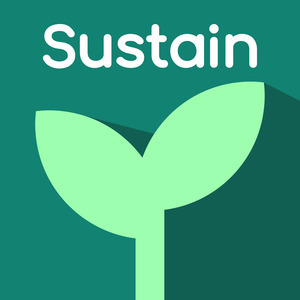Episode 239
Deb Goodkin of FreeBSD
June 28th, 2024
39 mins 7 secs
About this Episode
Guest
Deb Goodkin
Panelist
Richard Littauer
Show Notes
This episode of Sustain features host Richard Littauer having a conversation with guest Deb Goodkin, the Executive Director of the FreeBSD Foundation. They discuss the history, development, and distinct characteristics of FreeBSD as an operating system independent from Linux, and the foundational support provided by the FreeBSD Foundation. The conversation delves into the organization’s efforts in software development, security, community engagement, and plans to increase diversity. They also highlight the celebration of FreeBSD Day and Deb’s passion for maintaining and promoting FreeBSD. Press download now to hear more!
[00:00:55] Deb explains her role and clarifies that FreeBSD is an independent operating system, originally derived from Unix developed at Bell Labs.
[00:02:27] Richard mentions “BSD” stands for “Berkeley Software Distribution.” Deb confirms the existence of the BSD license and its relevance.
[00:03:27] Deb admits it’s challenging to determine the number of FreeBSD users due to the nature of the BSD license but estimates hundreds of thousands based on device usage.
[00:04:08] Deb distinguishes the FreeBSD Foundation from the FreeBSD Project, explaining the foundation’s role in supporting the project and the community through funding, development, and advocacy.
[00:06:47] Deb compares the FreeBSD Foundation to other foundations like the GNOME Foundation and the Linux Foundation, emphasizing FreeBSD’s focus on software development and community support.
[00:08:15] Deb reveals most of the foundation’s funding comes from corporate sponsors. She highlights the foundation’s increasing focus on security in response to global standards and government guidelines, mentioning FreeBSD’s involvement in security research and development.
[00:12:45] There’s a discussion on the foundation’s approach to policy and standards, noting the limited resources but emphasizing the importance of corporate and community input in deciding priorities and projects.
[00:15:52] Richard questions Deb about feedback mechanisms used to gauge the FreeBSD community’s concerns about security. He wonders about the participation dynamics. Deb details the communication channels within the FreeBSD community, mentions a recent community survey and what the responses revealed, and explains the 1% negative feedback.
[00:19:56] The conversation shifts towards diversity and inclusion within FreeBSD, questioning the foundation’s strategies to enhance geographical and demographic diversity. Deb discusses the foundation’s efforts to increase gender diversity, mentioning initiatives targeting women, especially through involvement in computing events and universities.
[00:24:05] Richard inquires about the prevalence of women in executive roles within open source foundations, sparking a conversation on gender dynamics in leadership and the intense dedication required in these roles. Deb shares her admiration for the passion and intelligence within the FreeBSD community and emphasizes the foundation’s commitment to supporting the project and its people.
[00:26:51] Why is Deb so passionate about FreeBSD? She reflects on her deep connection with the community, her continuous learning in the field, and her desire to see the project thrive long-term.
[00:29:06] Richard acknowledges the upcoming FreeBSD Day, and Deb shares how it showcases the uses of FreeBSD with a week of activities.
[00:31:26] Find out here you can learn more about FreeBSD and Deb’s work online.
{00:33:34] Richard asks about the FreeBSD logo, confused by the demon mascot. Deb clarifies that the mascot, named Beastie, is a playful representation related to the UNIX’s background processes (daemons) and not an actual logo.
Spotlight
- [00:35:34] Richard’s spotlight is Philip Pullman’s Trilogy book series.
- [00:36:12] Deb’s spotlight is Michael Lucas’s book, Absolute FreeBSD.
Links
- SustainOSS
- SustainOSS Twitter
- SustainOSS Discourse
- podcast@sustainoss.org
- SustainOSS Mastodon
- Open Collective-SustainOSS (Contribute)
- Richard Littauer Socials
- Deb Goodkin X/Twitter
- Deb Goodkin LinkedIn
- FreeBSD Foundation
- 2024 FreeBSD Community Survey is Here-FreeBSD Foundation
- FreeBSD Foundation YouTube
- The FreeBSD Project
- His Dark Materials by Philip Pullman-Wikipedia
- Absolute FreeBSD by Michael W. Lucas (no starch press)
Credits
- Produced by Richard Littauer
- Edited by Paul M. Bahr at Peachtree Sound
- Show notes by DeAnn Bahr Peachtree Sound
